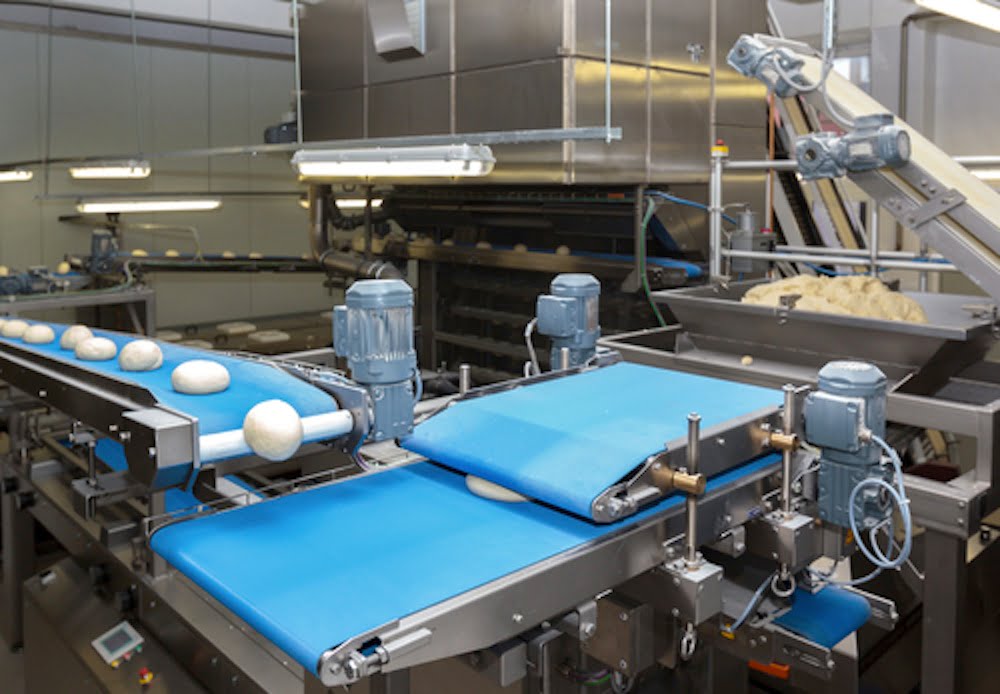What Enclosure Air Conditioner Features and Options are Best for Food and Beverage Applications?

The food and beverage industry is governed by rules and regulations designed to keep production areas free from contamination and disease-causing bacteria. These requirements place constraints on the design of enclosure air conditioners that require special consideration, including:
- Sealing: All enclosures need to be securely sealed.
- Subject to wash down: Food preparation areas are washed down on a regular basis and electrical equipment enclosures need to be able to withstand water sprays.
- Cleaning chemicals: The enclosure must withstand corrosive and other cleaning chemicals without suffering any deterioration
- Hygiene: The design, seals and materials of construction must promote good hygiene.
Specifications
Electrical equipment intended for the food and beverage industry must comply with various codes and standards. They should meet NEMA 4X requirements, which provide protection against ingress of dust and water and against corrosion. This level of protection provides the same degree of protection against water and dust ingress as the European IP66 protection standard. Equipment should also comply with UL requirements.
Materials and Methods of Construction
Enclosure air conditioners designed for the food and beverage industry should be manufactured from corrosion resistant materials such as stainless steel. The use of smoothly welded seam construction and a highly polished finish that is free from surface defects complies with the general requirements for a germ-free environment. Sloped housing tops help eliminate water accumulation.
Corrosion Protection for an Enclosure Air Conditioner
The heat given off by the enclosure air conditioner is removed by blowing air across the condenser coil. Although air filters are used, some corrosive chemicals will be drawn in by the fan, subjecting the condenser coil to corrosion. Even materials such as copper and aluminum may experience corrosion. For optimum protection, coils should be electrostatically coated to reduce this possibility.
Condensate Control
Moisture removed from the air inside the enclosure
condenses on the evaporator coil and needs to be safely removed from the air conditioner. Some air conditioners require that tubing be connected for the condensate to be conducted into a pail or sewer drain. This can result in water on the floor and related dangers of personnel injury and bacterial growth. A better way to effectively manage condensation is with an air conditioner that evaporates the water into the ambient air using heat from the refrigeration tubing.
Options
Additional options help ensure the reliability and integrity of the electrical enclosure:
- High capacity condenser filter: Food processing environments that have a lot of airborne particles such as flour or powdered sugar can impact the efficiency of an enclosure cooling system because air filters become clogged more quickly. An extended surface pleated filter will increase the filtration capacity and reduce how often the filter needs cleaning or replacement.
- Filter hood or louvered cover: A filter hood or a louvered filter cover gives extra protection from direct spray and can keep the interior of the enclosure air conditioner clean and dry.
- Open door kill switch: When panel doors are opened, dust and humidity will enter the enclosure and the air conditioner may run continuously causing excess water from condensation. This risk can be avoided by fitting an open door kill switch that turns off the enclosure air conditioner when the doors are open.
- Remote alarms: It is not always possible to verify proper operation of the enclosure air conditioner due to remote location. A remote alarm using a dry contact option, a PLC connected to an industrial network or a personal computer on an Ethernet network gives peace of mind and early warning of impending problems. The network approaches also provide remote access to the air conditioner control settings.
Reliable Operation
In the food and beverage industry, it’s important that enclosure air conditioners are reliable to prevent equipment malfunction and failure due to excessively high cabinet temperatures as these may lead to downtime and the possibility of food wastage. This can be achieved through the use of enclosure air conditioning that complies with the rigorous food and beverage standards, is designed to withstand wash downs, and incorporates design features that promote long equipment life. Request a quote for a Thermal Edge enclosure air conditioner today!

